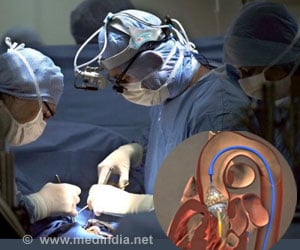If you want to pursue MBBS from a medical college in Assam, you must be prepared to serve the state government for a minimum of five years after passing out.
If you want to pursue MBBS from a medical college in Assam, you must be prepared to serve the state government for a minimum of five years after passing out. And for those wanting to pursue a postgraduate degree from any of the state's three medical colleges, one must be prepared to work for the health department for 10 years.
"We want to make sure that every panchayat has a doctor and to achieve our target, we shall create new posts every year," Assam's Health Minister Himanta Biswa Sharma said. A state of 26 million people, Assam has 26,000 villages spread over 27 districts.All MBBS aspirants who avail themselves of the state quota must sign a bond to this effect. "Any medical graduate flouting the bond will have to pay the state government a compensation of Rs.700,000. For a postgraduate, the compensation is fixed at Rs.1 million. These are the estimated amounts that the state would have incurred for the education of a single student," the health minister said.
In the past two years, the government has created 300 new posts of doctors. Besides, there are 69 vacant posts as of now. The three medical colleges at Guwahati, Dibrugarh and Silchar have produced 391 MBBS doctors and 150 postgraduates in the last session.
"We mean business and have set up a seven-member legal team to enforce our stipulation. Our focus is on total healthcare across the State," Sharma told IANS.
The government is also planning to sign a memorandum of understanding (MoU) with the tea companies to improve healthcare facilities for tea garden workers and people living in the vicinity of the plantations.
According to the health minister, 77 tea gardens have been identified and the modalities for signing of the MoU with their owners are being worked out. Assam has more than 800 tea gardens with a permanent work force of more than 500,000 people.
Advertisement
As per plans, the government would provide the inputs, including doctors and paramedics, to make these tea garden hospitals run effectively for the benefit of the workers as well as others surrounding the plantations.
Advertisement
LIN/C





